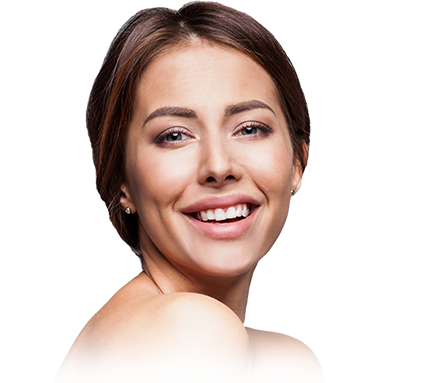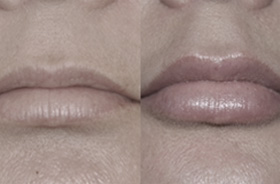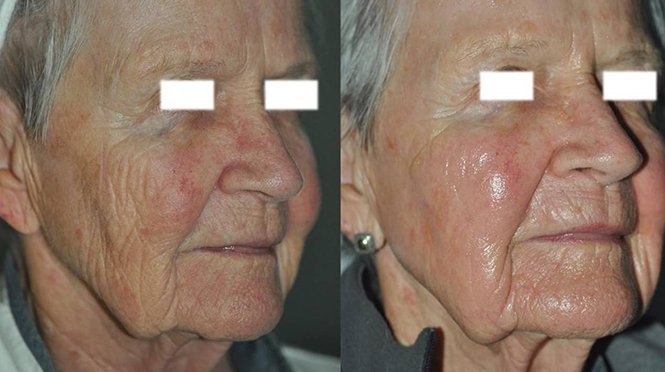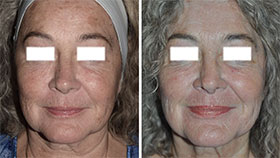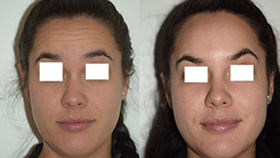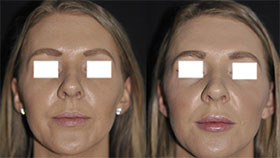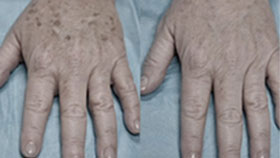Understanding How Skin Changes with Menopause
While menopause is commonly associated with hot flashes and night sweats, it can also be a time of significant changes in the skin. The decline in levels of the hormone estrogen leads to multiple effects on both skin and hair including dryness, wrinkling, laxity, thinning hair on the scalp but increased facial hair, and even acne. These midlife changes—although considered normal—are certainly undesirable, so adjustments to your skin care regimen may be helpful.
Estrogen promotes the retention of water and production of lipid in skin, so lower estrogen levels cause dryness and flaking. The skin may become itchy as a result, especially on the back and legs. Increased moisturization is necessary to restore skin hydration. Estrogen also promotes dermal collagen, which supports skin thickness. Its loss adds to wrinkling, sagging, and easier bruising.
Perimenopausal women can also see a resurgence of facial acne. Estrogen drops, but androgenic hormones such as testosterone remain steady, thus acting as a stimulus for sebum production and plugged pores. Conventional over-the-counter acne medications often contain ingredients such as benzoyl peroxide that are too drying for adult skin. Talk to your dermatologist about prescription alternatives that may be better tolerated.
Likewise, the relative increase of androgen to estrogen levels can thin scalp hair but paradoxically stimulate growth of facial hair. Androgenic alopecia, otherwise known as female pattern hair loss, causes decreased density of hair on the crown with a wider part. Non-prescription topical minoxidil may help stabilize thinning hair. Medical conditions such as thyroid disorders and iron-deficiency anemia can also contribute to hair loss, so it is best to consult your doctor first. Facial hair can be removed with chemical depilatories or waxing, although these methods may not be tolerated by more sensitive adult skin. Laser hair removal is a more permanent option but is only effective for dark rather than blonde or gray hair.
Consider the following measures to lessen the skin changes experienced in menopause:
- Take warm rather than hot showers. Steamy hot showers may feel wonderful, but they will dry out skin more. Use gentle cleansers for both face and body. Avoid antibacterial or deodorant soaps.
- Moisturize daily. Moisturizers are best applied after a bath or shower when the skin is still damp. Facial moisturizers with hyaluronic acid are especially effective to restore hydration and plump the skin.
- Consider adding rejuvenation products to your daily facial regimen to counteract collagen loss. Nighttime retinol creams help prevent fine wrinkling. Vitamin C serums act as antioxidants and may be better tolerated by sensitive skin. Glycolic acid lotions exfoliate and smooth skin.
- Remember that sun damage is the single largest contributor to aging skin, so a daily regimen that includes protection with SPF>30 sunscreen is essential to prevent UV light from compounding the adverse effects of menopause.
For more information or additional questions on menopause’s effects to the skin, consult your dermatologist.

